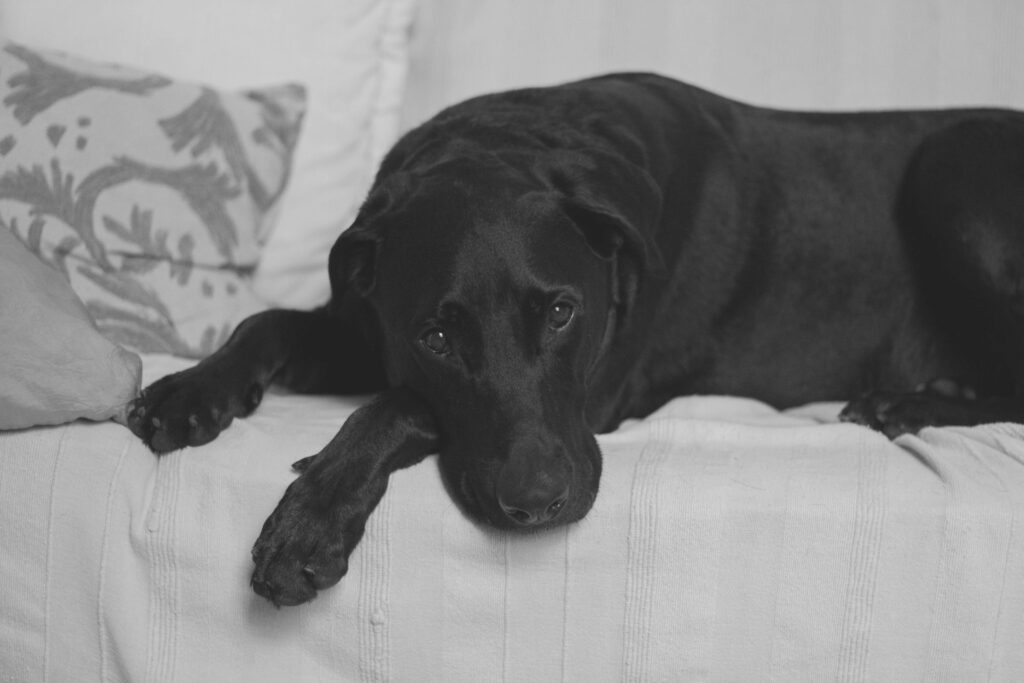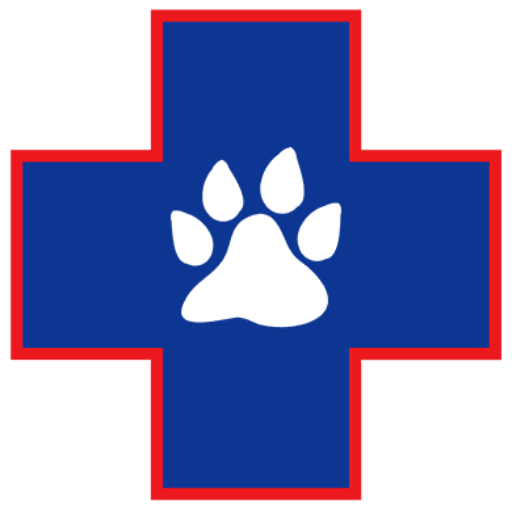Gastric Dilation and Volvulus (GDV), commonly known as bloat, is a serious and potentially life-threatening condition that primarily affects dogs. It occurs when the stomach fills with gas, food, or fluid and then twists, leading to a range of complications. Understanding GDV is extremely crucial for us as pet owners, as timely recognition and intervention can save our best friends lives.

What is Gastric Dilation and Volvulus?
Gastric Dilation and Volvulus or GDV involves two main components:
- Gastric Dilation: Where the stomach expands due to the accumulation of gas, food, or fluid.
- Volvulus: Is when the twisted stomach can obstruct blood flow, causing tissue damage and severe complications.
This condition is most common in deep-chested dog breeds, but it’s important to understand that it can occur in any dog under the right conditions.
Causes of Gastric Dilation and Volvulus
While the exact cause of GDV is not fully understood, several risk factors and potential triggers include:
- Genetics: Certain breeds, such as Great Danes, Doberman Pinschers, and Boxers, are more predisposed to GDV, but it’s extremely important to remember that any large breed, deep chested dog can be affected.
- Dietary Factors: Rapid eating, consuming dry kibble, or eating one large meal a day can increase the risk. Some studies suggest that feeding large breeds from elevated bowls may also contribute.
- Exercise: Vigorous exercise immediately before or after eating can promote bloating.
- Stress: Stressful situations, such as changes in environment or routine, may play a role.
- Age: Older dogs are at higher risk, possibly due to weakened stomach muscles.
Symptoms of Gastric Dilation and Volvulus
Recognizing the symptoms of GDV in your pup is vital for prompt treatment. Some of the common signs include:
- Distended Abdomen: A noticeably swollen or bloated stomach.
- Restlessness: Your dog may pace or seem unable to get comfortable.
- Unsuccessful Vomiting: Your dog may attempt to vomit without producing anything.
- Excessive Salivation: Drooling more than usual can indicate distress.
- Rapid Breathing: Increased respiratory rate can suggest discomfort.
- Weakness or Collapse: In severe cases, some dogs may become lethargic or faint.
If you observe these symptoms in your dog, it’s crucial to seek veterinary care immediately. GDV is a medical emergency that requires prompt attention.
Preventing Gastric Dilation and Volvulus
While it’s not always possible to prevent GDV, there are certain strategies that can reduce the risk:
- Feeding Practices:
- Feed smaller, more frequent meals instead of one large meal daily.
- Use puzzle feeders or slow-feed bowls to encourage slower eating.
- Avoid feeding your pups immediately before or after vigorous exercise.
- Dietary Considerations:
- Choose a high-quality dog food formulated to minimize bloat risk.
- Avoid foods that promote gas formation, and consult with your veterinarian about the best diet for your dog.
- Hydration:
- Ensure your dog has access to fresh water but avoid allowing them to drink large amounts at once, especially after eating.
- Regular Vet Check-Ups:
- Routine veterinary visits can help monitor your dog’s overall health and detect any early signs of problems.
- Gastropexy:
- For high-risk breeds, a preventive surgical procedure called gastropexy can be considered. This involves attaching the stomach to the abdominal wall to prevent it from twisting.
Gastric Dilation and Volvulus is a serious condition that demands awareness and prompt action from us pet owners. By understanding the causes, recognizing the symptoms, and implementing preventive measures, you can help protect your dog from this potentially fatal condition. Always consult with your veterinarian about the best practices for your specific breed and lifestyle to ensure your furry friend stays healthy and happy.

